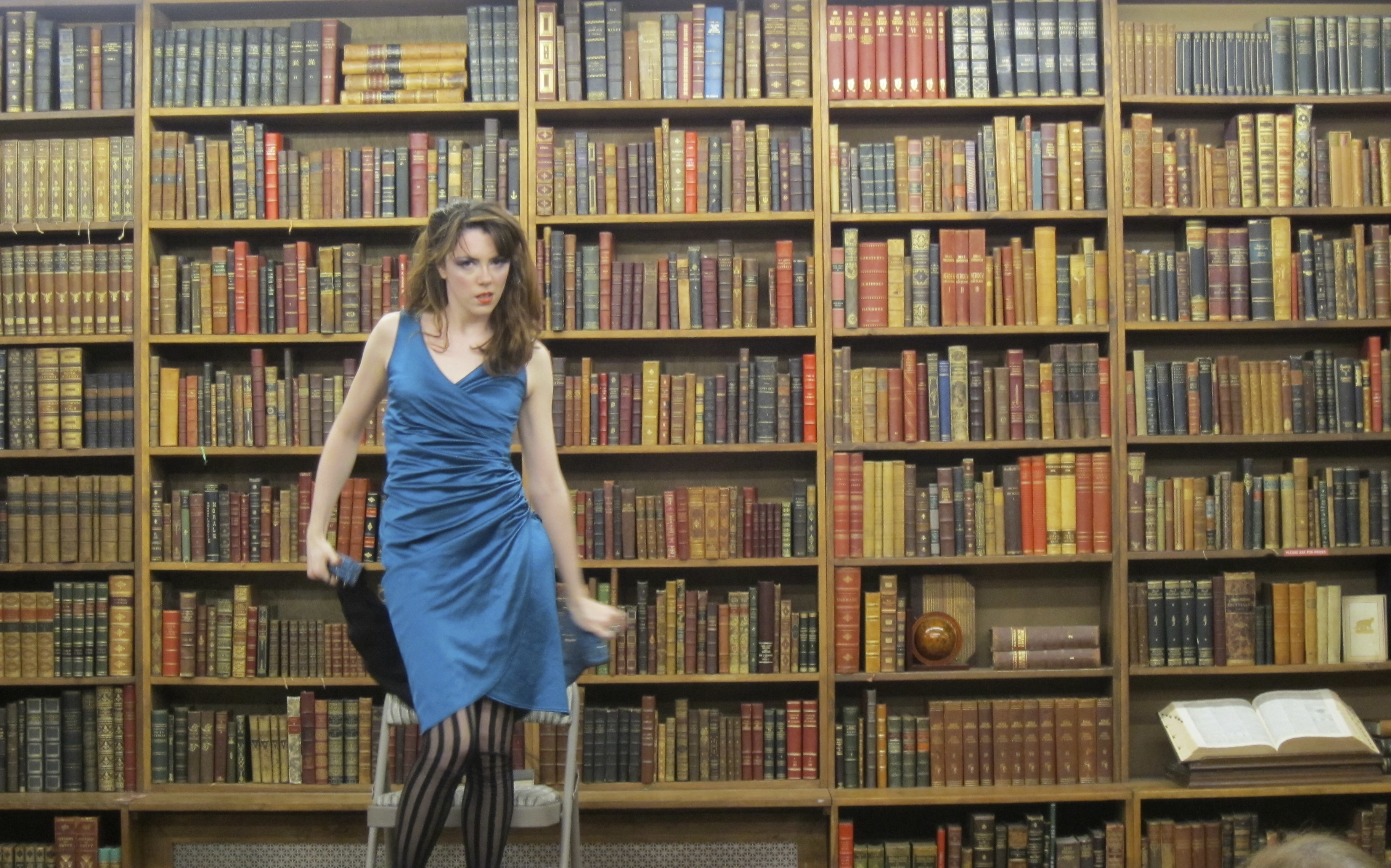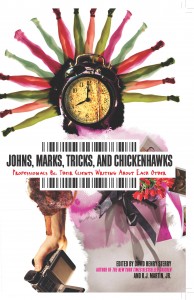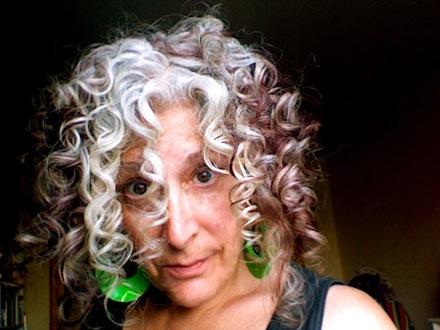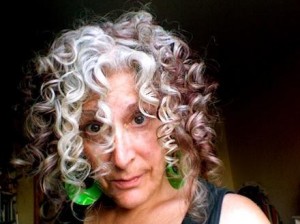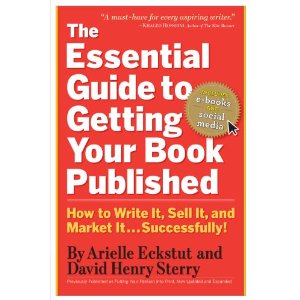Month: January 2014

“Prohibition will work great injury… for it attempts to control a man’s appetite by legislation, and makes a crime out of things that are not crimes. A Prohibition law strikes a blow at the very principles upon which our government was founded.”
If you don’t know who said that, I promise I’ll tell you later.
Selling sex for money is a multi-billion-dollar business. Apparently tens of millions of people want sex so bad they pay through the nose for it. And in that shadowy, shady, underworld, there are many different kinds of economic transactions. At one extreme are coercion, victimization, and exploitation. At the other are consent, empowerment and economic independence. I personally know many people from either extreme of this Bell curve. But both these exchanges are called prostitution. To say these exchanges are the same things is like saying that working at Bloomingdale’s and being forced against your will to work 20 hours a day in a sweatshop are the same thing.
Many people claim that if you make sex for money legal, it will be easier for predators who exploit adults and children alike. Of course, just the opposite is true. We know what happens during Prohibition. Gangsters control the means of production. Al Capone, quintessential American criminal/pop icon, was created by Prohibition. Just as the American Pimp has become the new superstar gangsta, and slithered his way into our culture. Pimp my Ride. Pimp my Crib. Pimp my Wife. It is much easier for predators to hide in an illegal industry. And when you make criminals out of industrial sex technicians, which is what I call people who work of their own free will in the sex business, they have no recourse when things go bad. And things go bad alot in this business. So people all over the Bell curve get raped, robbed, and beaten. Not only by clients. By law enforcement. When one of the recent whores serial killers was caught, he said he killed whores because it was easy, and he knew no one would miss them.
If you take all the money spent on the war on whores, on true industrial sex technicians, and focused it on actually tracking down traffickers and predators, you could take the bastards down. You can find these people if you want to. But there are great economic forces at work in America, and throughout the world, that want desperately to keep things the way they are. Because there’s so much money involved.
But the bottom line, economically, is that there is a big beautiful sexy cash cow to be milked here. With a reasonable rate of taxation, people who choose to work in the business could make a very good living wage, get health insurance, and even have a retirement plan, if that’s what they choose. It’s all about choice. Everyone should have the choice to do what they like as long as they pay their bills and don’t hurt anyone. Isn’t that the whole idea behind America? And with some of that money, we could help people who want to leave the sex business get the skills necessary to transition. Apply the rest of this cash flow to paying teachers a decent wage, making sure no one goes hungry or homeless. Arts and sports in the schools. Music classes for every kid in America! What a revolutionary idea.
As for heroin, since you’re a basketball player, I’ll put it in your vernacular. It’s a slam dunk. In <em>USA Today</em> recently, right on the front page, in very small words, it said that the Taliban is making its money from buying and selling heroin. If you make it legal, like tobacco and alcohol, and package it nicely, you take away the Taliban’s cash flow. And again, you get to control this huge beautiful dopey goose that keeps laying big golden eggs. And why stop at heroin? Consider the hundreds of millions generated by the wacky weed industry. The trade in opium has been brisk for centuries. Hashish. Ecstasy. Speed. ‘Shrooms. Cocaine. Acid. Imagine the fun Madison Avenue would have. Orange Sunshine, the LSD with Vitamin C. Willy Weed, the only dope Willie Nelson smokes. Harry Potter’s Magic Mushrooms.
It’s not drugs that are the problem. Humans have used hallucinogens, intoxicants and in inebriates for as long as anyone cares to remember. Even when they’ve imbibed so much they can’t actually remember. It’s people’s behavior that’s the problem. Every time I’ve been in a room with people shooting up, they just lay there with silly grins on their faces, and their heads nod up and down like bobble head dolls. It’s when they run out of the drugs that the problems begin. If heroin was legal, like cigarettes and alcohol, addicts wouldn’t need to rob and pillage. Cigarettes and alcohol kill a lot more people than marijuana and heroin. But we say, go ahead, smoke and drink all you want, booze it up until you’re dead, if that’s your pleasure. We make money from taxing these products. We control the means of production and distribution. Again, isn’t that what America is all about? That we can do what we want as long as we mind your own p’s and q’s?
Take the money we spend on the war on drugs, and actually go after the Taliban, as well as gangsters in South America and Asia (many of whom are financed by the drug trade) after their money source has been cut off. Instead of declaring war under false pretense and trying to set up our own militia government so we can make millions for military contractors and their cronies, while ensuring that we are more hated every day.
There it is. Economic turbo-boost, predators and traffickers hunted down, Taliban and international gangsters crippled. All with the blessing of Abraham Lincoln. That’s who gave that great shout out about prohibition.
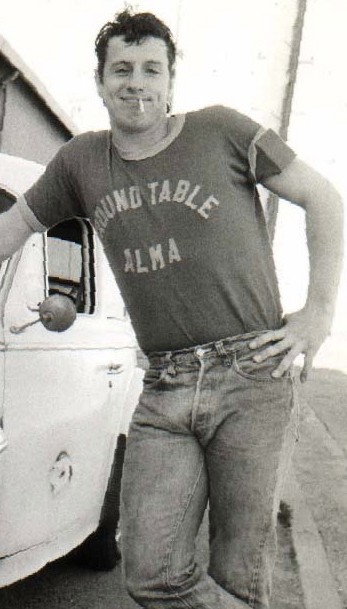
New review for Chicken:
“You’re young, hot and desperate—then along comes a sweet-talking guy named Sunny, “all mint julep Old School Charm School charm,” who wants to sweep you into his, uh, employment agency. It’s a story as old as civilization, but rarely before has a straight young man come forth to bare the time he spent cruising the finest boudoirs of Los Angeles. David Henry Sterry, in prose that sizzles with verbal pyrotechnics, answers the call of a Lost Angel Siren and takes us on an anthropological tour that includes “a postmodern June Cleaver,” a Deadhead, a judge and a friendly cast of junkies and cross-dressers. Sterry’s party-til-forever scenes thwump to a jazz beat, but there’s always a wail of blues in the background. It’s a double-life story, at heart a raw tale of the bullying father, the neglectful mother and the broken-up home that led him to the streets when he was a college freshman who looked, on the surface like a middle class kid. At the same time Sterry is candid about the lure of his other life; the addictive appeal of getting paid to inflict pleasure, the cheap euphoria that never fully masks the fear that you’ve become what you’re pretending to be.” – Stories by Ourselves
Chicken: Self-Portrait of a Young Man for Rent, Ten Year Anniversary Edition
“Ten years ago, this debut memoir from Sterry burst upon the literary scene with an energy and inventiveness that captured his little-known subject matter—teenage life in Los Angeles as a rent boy working for a benevolent pimp named Sunny whose “rich, generous, horny friends,” Sterry explains, “pay good money to party with a boy like me.” Now back in print, Sterry’s memoir still crackles with its unsparingly honest approach: “I catch myself in the mirror, seventeen-year-old hardbody belly, pitprop legs, zero body fat, and huge hands. I’m seduced by the glitter of my own flesh.” Scenes from Sterry’s early dysfunctional family life not only add pathos to this tale of fall and resurrection but assure readers that he never sees himself as better than his clients, such as Dot, the wealthy 82-year-old, whose only desire is to experience cunnilingus for the first time—a desire that Sterry readily fulfills. “Even though I have no home and no family except for a bunch of prostitutes and a pimp, even though I have no future… at least I’m good at this.” (Oct.) – Publisher’s Weekly
Find Chicken at your local independent bookstore: Indiebound 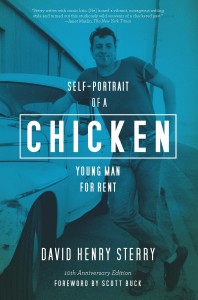 Amazon
Amazon
“I walk all the way up Hollywood Boulevard to Grauman’s Chinese Theatre: past tourists snapping shots; wannabe starlets sparkling by in miniskirts with head shots in their hands and moondust in their eyes; rowdy cowboys drinking with drunken Indians; black businessmen bustling by briskly in crisp suits; ladies who do not lunch with nylons rolled up below the knee pushing shopping carts full of everything they own; Mustangs rubbing up against muscular Mercedes and Hell’s Angels hogs. It’s a sick twisted Wonderland, and I’m Alice.”
This is the chronicle of a young man walking the razor-sharp line between painful innocence and the allure of the abyss. David Sterry was a wide-eyed son of 1970s suburbia, but within a week of enrolling at Immaculate Heart College, he was lured into the dark underbelly of the Hollywood flesh trade. Chicken has become a coming-of-age classic, and has been translated into ten languages. This ten-year anniversary edition has shocking new material.
“Sterry writes with comic brio … [he] honed a vibrant outrageous writing style and turned out this studiously wild souvenir of a checkered past.” – Janet Maslin, The New York Times
“This is a stunning book. Sterry’s prose fizzes like a firework. Every page crackles… A very easy, exciting book to read – as laconic as Dashiell Hammett, as viscerally hallucinogenic as Hunter S Thompson. Sex, violence, drugs, love, hate, and great writing all within a single wrapper. What more could you possibly ask for? -Maurince Newman, Irish Times
“A beautiful book… a real work of literature.” – Vanessa Feltz, BBC
“Insightful and funny… captures Hollywood beautifully” – Larry Mantle, Air Talk, NPR
“Jawdropping… A carefully crafted piece of work…” -Benedicte Page, Book News, UK
“A 1-night read. Should be mandatory reading for parents and kids.” -Bert Lee, Talk of the Town
“Alternately sexy and terrifying, hysterical and weird, David Henry Sterry’s Chicken is a hot walk on the wild side of Hollywood’s fleshy underbelly. With lush prose and a flawless ear for the rhythms of the street, Sterry lays out a life lived on the edge in a coming-of-age classic that’s colorful, riveting, and strangely beautiful. David Henry Sterry is the real thing.” –Jerry Stahl, author of Permanent Midnight
“Compulsively readable, visceral, and very funny. The author, a winningly honest companion, has taken us right into his head, moment-by-moment: rarely has the mentality of sex been so scrupulously observed and reproduced on paper. Granted, he had some amazingly bizarre experiences to draw upon; but as V. S. Pritchett observed, in memoirs you get no pints for living, the art is all that counts-and David Henry Sterry clearly possesses the storyteller’s art.” – Phillip Lopate, author of Portrait of My Body – Phillip Lopate, author of Portrait of My Body
“Like an X-rated Boogie Nights narrated by a teenage Alice in Wonderland. Sterry’s anecdotes… expose Hollywood at its seamiest, a desperate city of smut and glitz. I read the book from cover to cover in one night, finally arriving at the black and white photo of the softly smiling former chicken turned memoirist.” -Places Magazine
“Snappy and acutely observational writing… It’s a book filled with wit, some moments of slapstick, and of some severe poignancy… a flair for descriptive language… The human ability to be kind ultimately reveals itself, in a book which is dark, yet always upbeat and irreverent. A really good, and enlightening, read.” – Ian Beetlestone, Leeds Guide
“Brutally illuminating and remarkably compassionate… a walk on the wild side which is alternatively exhilirating and horrifying, outrageous and tragic… Essential reading.” – Big Issue
“Visceral, frank and compulsive reading.’ –City Life, Manchester
“Sparkling prose… a triumph of the will.” -Buzz Magazine
“Pick of the Week.” -Independent
“Impossible to put down, even, no, especially when, the sky is falling…Vulnerable, tough, innocent and wise… A fast-paced jazzy writing style… a great read.” -Hallmemoirs
“Full of truth, horror, and riotous humor.” -The Latest Books
“His memoir is a super-readable roller coaster — the story of a young man who sees more of the sexual world in one year than most people ever do.” – Dr. Carol Queen, Spectator Magazine
“Terrifically readable… Sterry’s an adventurer who happens to feel and think deeply. He’s written a thoroughly absorbing story sensitively and with great compassion… A page-turner… This is a strange story told easily and well.” – Eileen Berdon, Erotica.com
“Love to see this book turned into a movie, Julianne Moore might like to play Sterry’s mum…” – by Iain Sharp The Sunday Star-Times, Auckland, New Zealand).
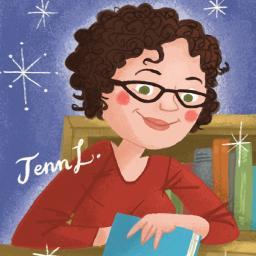
As The Book Doctors have traveled all across this great land, we’ve made a startling discovery. A staggering number of adults want to write books for kids. And approximately 99% of them have absolutely no idea what they’re doing. They don’t know the rules. They don’t know the players. They don’t know anything except that they have a great idea for a kid’s book and they yearn with a burning fever to get it published. Between us, we have we’ve thirteen books, four being nonfiction books for tween girls, and the other a middle grade novel aimed at boys. And Arielle has agented dozens and dozens and dozens of books in her 18 year career as a literary agent. But so much has changed in the world of children’s books, and so many people seem all fired up to write them, that we thought we’d get the inside skinny from one of our favorite children’s book resources, Jennifer Laughran. Jennifer’s had a fascinating career in the publishing industry, because she’s gone from hand-selling books to readers in brick-and-mortar bookstores, to finding writers who have the right stuff, then figuring out how to present and sell their manuscripts to publishers in the increasingly ridiculous book business.
Book Doctors: How did you manage to end up in the book business?
Jennifer: My first job was in a bookstore, when I was twelve.
Book Doctors: Ah, they got you young.
Jennifer: Exactly. It may have been child labor; as I recall I got about five dollars a day plus all the stripped copies of Sweet Valley High I could read.
Book Doctors: Who could resist that?
Jennifer: Certainly not me. I spent the next eighteen years working as a bookseller, and then events coordinator and buyer, for bookstores all over the country. I was also a reader and assistant for literary agents for a couple of years before I became one myself. Then I joined Andrea Brown Literary Agency as an agent three years ago.
Book Doctors: So, everyone wants to know, do you need an agent to get a children’s book published?
Jennifer: Ten years ago or more, the answer would have been no. These days, trade publishing is ever-more competitive and none of the major publishers accept unsolicited (i.e., un-agented) submissions. If you are very lucky, very persistent and very well-connected, you may not need an agent. But most authors don’t fall into that category. That said, if you are looking to be published in a niche market, by a specialty educational publisher, regional or smaller independent publisher, you may not need an agent.
Book Doctors: What are the standard age groups for children’s books?
Jennifer: Board books: 0-3. Picture books: 3-7. Chapter book/Early readers: 5-8. Middle Grade: 8-12. YA: 12+ or 14+ (depending on content)
Book Doctors: Does your book have to be a particular length to sit on a children’s book shelf?
Jennifer: Sure. But that varies depending on the age group; picture books are usually less than a thousand words, YA is usually less than 100,000 words.
Book Doctors: Can you sell a book for kids of all ages? How would you go about doing this?
Jennifer: In general, children’s publishers pick one age group that the book is for and publish it accordingly, and if there is crossover, that is all to the good. Every book I can think of that is supposedly “for kids of all ages” does in fact fall into one of those categories above, or is an adult gift or novelty book in disguise.
Book Doctors: If a writer has ideas for illustrations, should she put them on the page?
Jennifer: No. Illustration notes are distracting and almost always unnecessary, and will expose you as a newb.The only time you should put them is if there is some sort of visual joke or device that is totally necessary to the plot of the book, but impossible to deduce from the text alone.
Book Doctors: Is a good idea to have your uncle’s friend’s 18-year-old son who’s pretty good at art illustrate your book?
Jennifer: No. Let me say again:<em> No!</em>
Book Doctors: Is it ever okay to team up with an illustrator before going to a publisher?
Jennifer: There are some successful folks who are husband-wife or sibling teams or even best-friend teams, where one party is a professional illustrator and the other writes. They work well together and create awesome projects together. That said, these sorts of collaborations aren’t the norm. The much more likely scenario is that a publisher will prefer the text or the art and might be fine with publishing one but not both. Publishers almost always really want to choose their own illustrator.
Book Doctors: If you are an illustrator that has an idea for a kid’s book, but you have no writing chops, how would you go about getting your book published?
Jennifer: I’d learn to write, or get enough published as an illustrator of other people’s works that I developed a reputation with publishers. A big-name illustrator has a much better chance of getting help from publishers in developing a project.
Book Doctors: What are the top 3 mistakes you see in author submissions?
Jennifer: Impatience, Poor Presentation, General Cluelessness. Folks often shoot themselves in the foot by not taking the time to craft an effective pitch, or to target agents specifically, or to query in small batches. They submit material that is deeply flawed, not revised, not finished, or in some cases not even started. They submit material that is totally inappropriate and not what I represent at all because they are blanket-querying every agent in the world simultaneously. I only do kids & YA, fiction yet I daily get queries for erotica and narrative nonfiction.
Ideally, authors would do their homework before they start querying, and their work would be as finished, polished, as close to being ready to sell as possible.
Book Doctors: Does it help to come up with a publicity and marketing plan for your book when querying an agent or publisher?
Jennifer: Sure, though I wouldn’t lead with that; it’d just be a cool bonus if they loved your work enough to publish it already. Most marketing plans sort of grow organically as the book progresses in the editorial and design process and as buzz builds in-house.
A book can take anywhere from a year to several years to be published, and the content of the book, as well as the way it is positioned in the marketplace, are definitely subject to change in that time. That means marketing and publicity pushes that come about just prior to or just after publication will likely look a lot different, and be a lot more effective, than what was being imagined at the query stage. That early in the game, most folks don’t really know what their book is going to be when it grows up.
Book Doctors: Jennifer, on behalf of the Book Doctors and clueless children’s book writers all over America, we thank you.
Jennifer: You are all certainly welcome.
Jennifer Laughran worked in bookstores for years, and is now an agent at Andrea Brown Literary Agency. She is also the founder of the Not Your Mothers Book Club.
Arielle Eckstut and David Henry Sterry, aka The Book Doctors, are the authors of The Essential Guide to Getting Your Book Published. They’re hosting Pitchapaloozas–a kinder gentler American Idol for books–at bookstores and libraries all over America. Check out their website http://www.thebookdoctors.com/to see their tour schedule, and for free helpful hints on how to get successfully published.
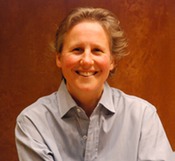
“Do I really need an author website?” We get asked that question every day by an author, or someone who wants to be one. Having spent lots and lots of time and energy constructing one ourselves, we are big believers in author websites, but we decided to take this question to the person we consider the expert on the subject: Annik LaFarge. Annik is the author of The Author Online: A Short Guide to Building Your Website, Whether You Do it Yourself (and you can!) or You Work With Pros. She also happens to have spent twenty-five years as an executive in the book publishing business, working at Random House, Simon & Schuster, Addison-Wesley, and Bloomsbury USA. She began her career as a publicist, and went on to become an associate publisher, marketing director, senior editor, and publishing director. And she was involved in the early efforts to create e-books and develop strategies for digital publishing. In the late 1990s, at the height of the dot com boom, Annik took a year away from publishing to join entrepreneur and journalist Steven Brill in the development and launch of Contentville.com, where she published an original series of e- books and oversaw the website’s bookstore. In 2008 she left publishing to start her own company, Title TK Projects, which specializes in website project management, editorial work, and consulting on digital strategy. Author websites she has project-managed include MitchAlbom.com, FrenchWomenDontGetFat.com, MireilleGuiliano.com and TaraParkerPope.com. Clearly, Annik knows what the heck she’s talking about. So we asked her to share with us the benefits of author websites. She was also kind enough to share with us her 10 ½ tips for being a more effective author online.
THE BOOK DOCTORS: In this age of social media, why is a website still important? Is it possible to just get away with a blog/Facebook page/Twitter presence?
ANNIK LAFARGE: Even in this age of social media, having a website is really, really important. A recent study by the Codex Group showed that that websites are one of the key ways people find out about books. Surprisingly, in terms of new book discovery, Facebook and Twitter are much less influential than author websites. Some of the reasons for this have to do with SEO (search engine optimization) and keywords. When you type in an author’s name, his/her website is first thing that comes up. To be the first result that pops up in a Google search is reason enough to have a website. This visibility gives you the opportunity to control your message and to craft the experience that you want that person who is interested in your work — that person who has taken the time to Google you — to see. Your website also gives you the opportunity to capture people’s email addresses and to build a newsletter list. Your mailing list is extremely important, even if you’re a literary fiction writer. People who give you their names and email addresses are telling you that they’re interested in you and your work and want to know more about you; they want to be kept up to date. Even just a 100-person list matters because you can use it as a mini-focus group, testing book covers and plot ideas, and you can easily alert your fans about new releases. And over time that list will grow and grow.
THE BOOK DOCTORS: What are the top mistakes authors make when designing their websites?
ANNIK LAFARGE: The biggest mistake I’ve seen is building a website and not using it. People get excited, build the engine and then let it just sit there. You need to have a plan for your website — a monthly and yearly plan: what sort of content will you launch with? What will you add as time goes by? How frequently will you post new material? Enough to blog? If so, what will the voice of your blog be? What will be the first 10 things you write about? I tell authors to plan for their website the way they do for a new book: write an outline, like a book proposal, that includes not only the “big think” — the overall substance and point of view of the website — but also a list of all the different pages and what they’ll contain. Think of it as a business plan for your site. Or to put it in more literary terms, it’s like mapping out a long piece of nonfiction — for both the hardcover and the paperback edition.
THE BOOK DOCTORS: A lot of struggling writers are concerned about the costs of setting up a website. I know you write about doing it yourself, but if you don’t have the time or inclination, what’s the minimum a person can spend and still have something that looks professional?
ANNIK LAFARGE: Anybody should be able to get a fine looking blog/website using WordPress, Sandvox (only available for Mac) or Squares Space; these are content management systems that allow you to customize a site off an easy-to-use template for nothing (in the case of WordPress, which is purely open source) or less than a hundred bucks. If you’re working with WordPress pick a theme you like at themeforest.net— my favorite of the theme sites but there are zillions on the web. And if you’re intimidated by technology then hire a designer who can create a nice banner and who knows how to do the basic programming (so you don’t have to hire a separate programmer). This can be done for as little as $500 and most designers these days are very comfortable in WordPress particularly. BUT, there is a very strong argument to be made for building a website yourself. Writers care enormously about how they present their ideas and their presence on the page, and having control over their own “content” is extremely important. Understanding how your website or blog works — how to post new material, set up new sections, add photos and videos, link up with Facebook and other social media venues — means that you can always make changes and additions whenever you like; you’ll never be dependent on a webmaster or an overworked publicist again. For many authors a website is their beating heart in the public space. Creating one can feel daunting — anything more technical than Microsoft Word intimidates many writers — but it’s enormously empowering and creative, and the technology has evolved to the point where honestly anyone can do it. You can map out the structure for your website — e.g. create your own “wireframe,” which is to a website what a blueprint is to an architectural project — at a cool new site called GoMockingbird which is very easy to use and inexpensive. Or you can do it the old-fashioned way, using a pencil and an 8 ½ x 11 sheet of manuscript paper. But sketching out a site — putting your plan on paper — is a great way to work through your ideas about who you want to be on the web, and it can save you lots of time and frustration later on.
THE BOOK DOCTORS: You are now a self-published writer. What platform did you use? What was the costliest part of the process? What was your favorite part of the process.
ANNIK LAFARGE: I went the more complex route by setting up my book at many different retailers. I used Amazon’s Create Space for the POD (print-on-demand) paperback version of my book and am very happy with them; they have great customer service and excellent help documentation. Early on I decided I wanted my book to look like a real book — even the ebook version — so I paid a designer to do a proper interior and a cover. I thought I could do the Kindle conversion myself but I made a real hash of it, so I sent the manuscript to ebookconversion.com and let them create the ePub edition. Then I set up accounts at Apple’s iBookstore (using iTunes Connect), Barnes & Noble’s PubIt! for the Nook), and Google Editions, and I simply uploaded the file at each place, created all the metadata (description, bio, etc.), and I was in business. For awhile I even sold a PDF of the book myself, on TheAuthorOnline.com, using an online tool called e-junkie, which allows you to sell digital products very easily and inexpensively. I could have gone to Lightning Source, which is a great company, and they would have streamlined the whole process for me, but I wanted to learn about each and every step along the way myself, and I make more money this way on every sale. It was time-consuming, but generally fairly easy to do. The most complicated part was dealing with Bowker who you have to go through to acquire an ISBN (the unique identifier for your book that retailers use to display and sell your book). But I’ve trained myself to go into what my partner Ann calls “the Sufi state” and become deeply patient before I visit any e-commerce site I want to partner with. I’ve found that eventually I can slog through and figure out just about everything I need to do, and there’s a particular satisfaction in that. Call it author empowerment. What I love about ebooks and POD is how nimble they allow an author to be. You can update the content any time you like, and also change the price at will. You don’t get locked into decisions. And if you set up your own website, as I did with TheAuthorOnline.com, you get the benefit of the huge amount of traffic data that Google Analytics provides — for free. So you can learn a great deal about who your readers are. My advice: start slow, be smart, have fun, and just get on with it.
Annik’s 10 ½ Tips for Being a More Effective Author Online
No. 1: Think Like An Author
One of the things that authors (unlike other mere mortals) do is organize their thoughts and ideas. You don’t just sit down and write a book from page 1 to 300; you do a lot of thinking, researching, and planning. Tip #1 is to approach your web project in the same spirit. Put on your author hat and make notes and an outline. Start with several general questions that will help inform the overall organization of your website or blog:
Who am I as an author? If you were writing the opening graf of a newspaper profile of yourself, what would you consider the ideal description of your work? Where would you place the greatest emphasis? Where the least? And then: What do my readers want? What sort of questions do they ask you when you make public appearances? What do they say when they write letters or emails to you? And: What do I want my readers to know about me that they may not currently know? This is your chance to write the Ur Q&A. Consider it a work-in-progress: post it, then keep adding to it as time goes by and your writing and career develop.
No. 2: Make a Content Plan, Part 1: Static Elements
Make a list of static elements that you want to include on your website: content that doesn’t get constantly updated or newly created like entries in a blog. First focus on things that you already have or would be easy to create: sample chapter(s); biography; reviews; Q&A; etc. Then start another list: stuff you’d love to add in the future (The Author Online contains an exhaustive list of features that readers say they like on author websites). Then go back and prioritize your master list and arrange the items into broad categories that could serve as the navigation on your site: Books (do you subdivide Fiction & Non-Fiction?), Bio, Journalism, About, etc. These are the categories that make sense to you, based on the work you did in Tip No. 1.
No. 3: Make a Content Plan, Part 2: New Elements
Consider where your new content will come from. Do you want to blog? (Do you have time to blog? Will you run out of steam after 3 months?) Will you write occasional articles/essays to post on your site? Will you share early chapters with your fans? Invite them to vote on jacket art from your publisher? Will you constantly post new links to bloggers, videos, new studies/research in your field, etc.?
No. 4: Be Smart Today and Plan to Grow in the Future</strong>
Websites evolve. The best thing you can do is be smart and focused at the beginning, and assume that you’ll grow your online presence with time and valuable feedback from fans, traffic data, and other sources. So if you’re just starting out be honest with yourself about how much time you can devote to your site; be ambitious but also realistic about your plan for adding new content. Focus on quality of content not quantity, and always circle back to the questions you asked yourself in No. 1: what do your readers want? What do you want them to know about you? Then think about what’s the best way to deliver that on your site and map out a plan for the coming months. And be sure to keep a handy list of “Future Features” and ideas for new content. Tip 4a Set up a Dropbox account and keep your list in the cloud so you can always access and update it. This is particularly handy if you travel a lot, and you can install Dropbox on any mobile device. (See here for more about how Dropbox works. While you’re there, check out Evernote, another great app that helps you keep track of stuff you find online.)
No. 5: Build a Mailing List
Even if you don’t intend to send out an email newsletter create a sign-up form and place it conspicuously on every page of your website or blog. Do this on Day 1. You may not see a reason to have an e-letter today, but in a year or so you may. People come to your website because they like your work or they’re interested in your subject; give them a simple way to stay in touch. An author’s email list has tremendous value, and it will grow over time. Start now.
No. 6: Use an ESP
Use a professional email service provider (ESP) like MailChimp or Constant Contact. Some of these services are free until your list reaches a certain size (like MailChimp) and there are many benefits: they provide simple templates for creating professional-looking emails; easy opt-out links for your subscribers; and vast riches of analytic data about who opened your emails, what they clicked on, how many times they forwarded it, where they live, etc. From that data you will learn to do things better and more effectively in the future.
No. 7: Be Creative About Your Newsletter Signup
You don’t go on the radio and simply say “buy my book, it’s a great read.” You say: “buy my book because I describe all the best tools and strategies for killing a zombie and tell you how to prepare yourself in both an urban and a rural setting.” So in your newsletter signup offer some specifics about what your emails will deliver. For a very good example of a smart newsletter sign-up see the form that SocialMediaExaminer.com uses. They promise a value-add (a free video tutorial on using Twitter), and the text has a real voice. Another example of a creative newsletter signup is the blog CrazySexyLife.com. The first signup box I saw there (in 2009) had three separate options: daily, weekly and monthly, so the reader could choose how much of author Kris Carr’s stuff she really wanted. Recently Carr updated her newsletter signup and it’s still great, but very different and now she also offers a free piece of content for folks who sign up. You’ll find screenshots of all these examples at TheAuthorOnline.com/newsletter
No. 8: Use Google Analytics
Set up your Google Analytics account on Day 1 and get addicted. As you gain traffic you will find this a terrific editorial tool because you’ll know what your readers are looking for, what they actually spend time reading, where they come from (country, state, city), and much more valuable data. Nothing will teach you more about how you’re doing online than Google Analytics, and it’s free. Don’t forget: launch it on Day 1.
No. 9: Visit Your Own Site Regularly
Go to your website at least once every few weeks and test your links (they have an uncanny way of breaking for no apparent reason). While you’re there, chances are that something will strike you: “gee, I could do this better,” or “that featured article is feeling a bit long in the tooth, it’s time to replace it with something else.” Be objective, be critical, be creative. Test new things and check the results in Google Analytics. Then lather, rinse, repeat.
No. 10: Have Fun, Be Empowered</strong>
Websites are stressful — everybody knows that. But remember all those times you had a great idea for your publicist and it just never got off the ground? Well, guess what: with your own website you can do a whole lot on your own. And once you start understanding how to use it well, and you get in the groove (and you build up your mailing list, social networking fan base, RSS subscribers….) you’ll be able to reach your readers directly whenever, however, you want. And you can invite them to provide their feedback, both publicly (through blog comments, message boards, and of course in social networking environments) or you can keep things quiet and just enable people to email you via the site. You can start small and grow. Most of all, can you can do it yourself. Visit TheAuthorOnline.com for a rich (and constantly updated) list of resources, sample author and book-specific websites, online tools, articles, links, and more. Please email me and tell me what you think I can do better, or simply alert me to your web project. I’m interested, and many others are too. Most of all, have fun.
Good luck with your project!
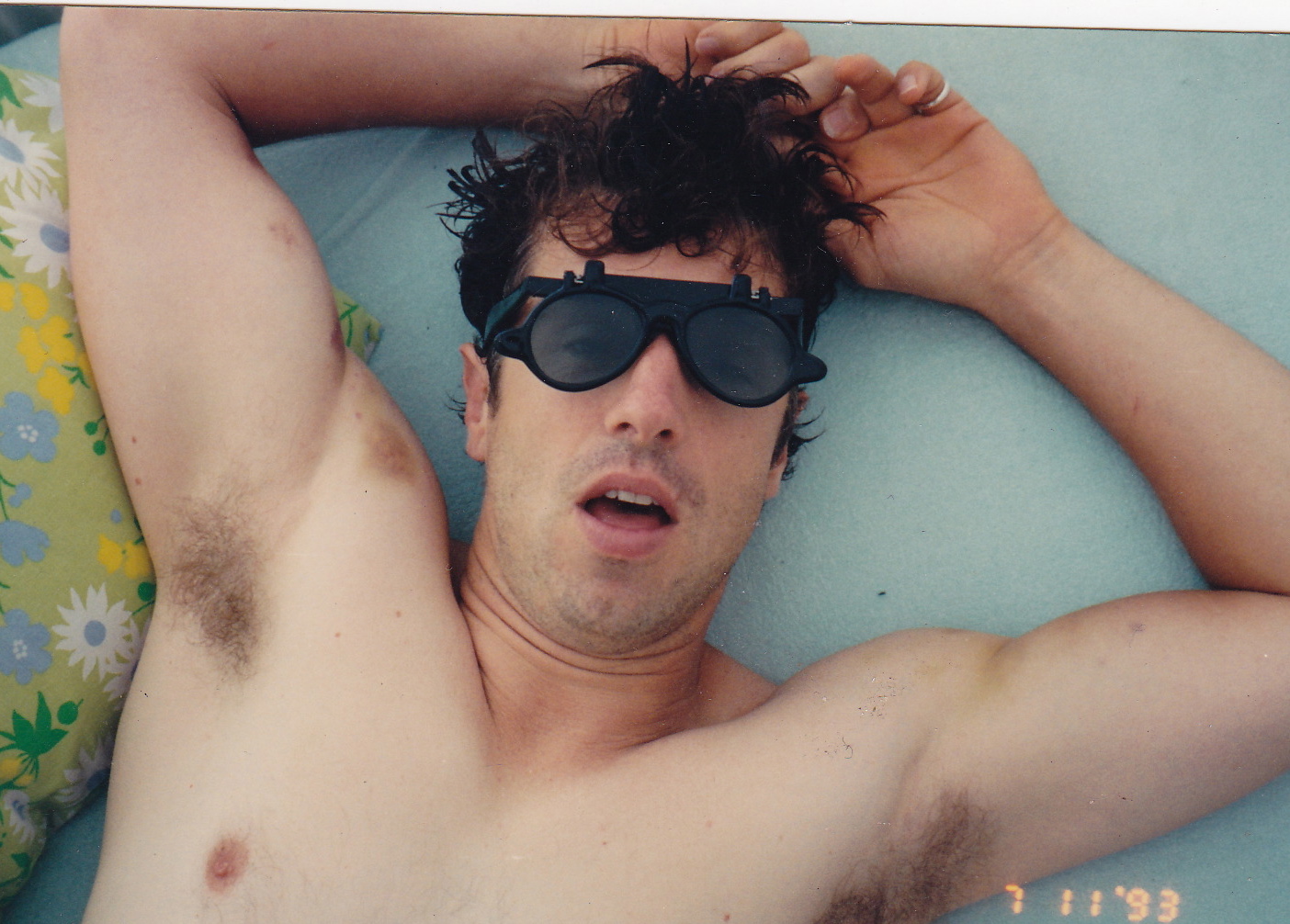
(An excerpt from the Soft Skull anthology Johns, Marks, Tricks & Chickenhawks, follow-up to Hos Hookers, Call Girls & Rent Boys)
This is how I go from being someone who sold sex, to someone who buys it. I’m cruising in my beat-to-hell car through the seedy groin of the Tenderloin. She’s all obsidian and copper, wearing jeans and a T-shirt. All the other hos sashaying down the stroll are like kabuki cartoon caricatures of hookers: glittery miniminiminiskirts, mammoth jackedup décolletage spilling tit flesh out of halter tops, machete heels and painted razor nails. That’s why I notice her. She looks like somebody I might hang out with. Not like a lady of the night. I have ho-dar and I know she’s working. I’m 23. I’ve been retired from the sex business for six years. There was no gold watch, severance package, or golden parachute.
It hits me suddenly. I could just pay this girl to have sex with me. It seems odd that I’ve never considered buying sex, when I sold so much of it. But this was before you could see a world full of women selling sex just by trolling on a websites. Plus, everywhere else I lived, you had to know where the hookers were and go find them. Not in San Francisco. Here, they’re strolling right down Geary like they own the place. Also, for the past six years I’ve been sleeping-on-people’s-couches, living-in-damp-basements, crashing-in-the-student-center poor. That’s how I lived rather than go back to selling sex. It saved my life at a time when I didn’t have any money or people, but it left me bent, spindled and mutilated. Plus, when I was a provider, all the clients I had sex with for money was at least old enough to be friends with my parents. So it just didn’t seem like the kind of sex I wanted for myself. Fun sex. As opposed to sex for profit.
So for the first time since I left the sex business, I have cash in my pocket and I am face-to-face with a woman I’m attracted to who will give me sex for money. As I cruise in my beat-to-hell car I realize I don’t want a professional. I was a professional. I know what it means to be a professional. No matter how much you look like you’re into it, there’s almost always a part of you that isn’t quite there. A part of you who watches yourself performing acts of sex. And most of times you’re lying to the customer. Pretending that their stories are fascinating, that they’re charming, beautiful, and intelligent, that you’re really turned on and happy. There were very few times when I was selling sex that I completely lost myself in a moment of true sexuality. No matter how good it felt physically, I always had that very conscious awareness that it was my job to turn myself into whatever would keep the customer satisfied. Customer satisfaction. Customer gratification. Customer elation. Customer orgasm.
But now I’m 23. I have money in my pocket. It hits me like a velvet glove that I could pay this excellent looking young woman to have sexual intercourse with me. I never for one second wonder whether it’s moral, whether it’s right or wrong. I didn’t think that when I sold it either. It always seemed like a fair exchange of cash for services. I only felt ashamed when I thought of people shaming me. But right now, I just want to be a great, great customer. I had a couple of clients who taught me so much about life and love and sex and they were so sweet and fun nice to me. As opposed to the customers who demeaned, polluted and punished me.
I stop my beat-to-shit car. She’s walking slow and casual, like she has nowhere to go in her jeans and T-shirt. She looks like she could be on her way home from her job at Barnes & Noble, or on her way to see an independent rock band play at some cool club. I have shockingly vivid visions of what she’ll look like naked underneath me. I’m sex drunk.
I roll down the window. She leans down so her head is in the frame of the car window. It’s like she’s on my TV.
“Hey, how you doing?” Obsidian Copper has the darkest shiniest eyes. And hair. A tiny smile flirts on her lips. A tiny twinkle flashes in her fired-glass black eyes. Like she thinks the whole thing is rather amusing. I like that. That’s how I tried to be when I was an industrial sex technician.
“I’m better now that I’m looking at you.” Writing it down now it seems like a cheesy line, but I really did mean it. I actually made me feel better looking at her.
“I bet you say that to all the girls,” Obsidian Copper chuckles in the most endearing way. “Are you with cops?”
Talk of law enforcement kick starts my central nervous system, a jolt of adrenaline squirts out of my glands, my fight-flight alarm rings, buzzes and beeps. It’s like I’m the star of a really cool movie.
“Do I look like a cop?” I raise my eyebrows in a droll ho-stroll smirk.
“That’s what a cop would say,” she shoots back with a sly copper deadpan.
“No,” I say, “I’m not now, nor ever have I been, with the police.”
Obsidian Copper gets in my beat-to-shit car. Smells of grit, used booze, bus exhaust and the Tenderloin waft in with her. But underneath is a fresh smell of somebody who’s cleaned themselves recently with a nice soap, and hasn’t covered the whole thing up with toxic, eye-stinging perfume. When I smell her I want to have sex with her even more.
“Where to?” I ask.
“Just start driving,” she says, like we’re in some 30s noir movie, where she’s the dangerous dame and I’m the lovelorn palooka.
I start driving.
“So,” I say, “I used to work in the business.” I want her to know that I’m in the people-who’ve-sold-sex club.
“Really?” Obsidian Copper doesn’t seem surprised. I suspect it would take a lot to surprise her.
“Yeah, when I was younger. In Hollywood.” I never told anyone before, and it feels good. I’m realizing that’s one of the cool things about paying an industrial sex technician. I can tell her anything. I don’t have to worry about making some kind of future with her. All I have to be a good customer, and she’ll basically whatever I want. Of course I understand all that intellectually, and I saw it over and over again with my clients. Coma Girl. The 82-year-old who wanted cunnilingus just once before she dies. The judge in diapers. But I never thought about it from a consumer’s perspective. It’s very liberating. A couple of years after I got out of the sex business I became a marriage counselor. People wanted me to listen to their problems. They wanted to be understood. When I was an industrial sex technician about half of the women who hired me didn’t really even want sex. They wanted me to listen. They wanted to be understood. Often while I was naked. And they had all their clothes on. Many of them wanted me to touch myself. It made me smile when I realized that often the only difference between being a top-of-the-food-chain industrial sex technician and being a marriage counselor was that I had all my clothes on, I wasn’t fondling myself and I was being paid much less money.
“So, what kind of the donation are you looking to make?” I love how that word has become part of the hooker/ho/industrial sex technician jargon. Donation. Like I’m helping to help endow the Prostitute Scholarship Fund. They do this of course because if I was a cop, they couldn’t say they were trying to get paid for services. It was just a donation to the Ho’s Retirement Home.
The meter’s running. Time’s money. Money makes the world go round. It can’t buy you love, but it sure can rent you some. It’s clear this is going to be different than sex I have with my girlfriends. Some of them gave me love with the sex. Often they’d want to have sex for a long time. As a client, I am going to have to pay for every second of sex. And there will be no love. It doesn’t seem quite so sexy anymore.
“I have $100. I’m not sure what the going rate is. That’s what I was making.”
I’m driving. Away from the Tenderloin up the hill into the overpriced air of Nob Hill. I glance over at Obsidian Copper. Her face is wide, her cheekbones flat, her skin smooth and beautiful. If you tarted her up, she could probably be a model. Driving around negotiating with Copper Obsidian I have a pumping rush of sexcitement, my mind floods with images of her floating on top of me, lowering myself down on her, taking her from behind, letting the monster loose. This is so much better than feeling vacant, hollow, brittle, bitter, agitated, jangly, unsettled, unhappy dissatisfied. Which I so often do.
Obsidian Copper looks at me with those deep hard raven eyes, sizing me up, weighing risk and reward, her face a still lake on a warm day when nothing is moving. She is a closed book. Finally she says:
“Okay, take a right up here.” Her voice is as flat as her face.
“Where we going?” I’m quite excited that I don’t know where I’m going with Obsidian Copper. But I’m also acutely aware that this could be some elaborate set up to kill me and slice me into little bloody pieces and dump me into the bay. Which makes my heart jackhammer, pulse spike, and nerve synapses jangle. This is such a high. Like rock climbing. Or white water rafting. Or bungee jumping.
“I’m sorry I only have 100, next time I’ll have more.”
“Sure.” This time she’s got a small but obvious sneer smeared on her lips. Like she’s heard that line 1,000,000,000 times before. I wondered if maybe something bad happened to her. Me, I got raped just before I got into the sex business. And now I’m wondering if something bad happened to her. Maybe not. Maybe she’s putting herself through grad school.
I have a surging urge to help her. Yes, I am a Sir Save-A-Ho. I do in some way see myself as a white knight in shining armor who can rescue the damaged beautiful ho with the heart of gold and rehabilitate her, in the process earning her eternal gratitude and a lifetime of free sex.
“What your heritage?”
“I’m half Mexican and half Cherokee.”
When she says this she really looks Cherokee. I can see her people in teepees, hunting the buffalo, living harmoniously with Mother Nature, not treating Her like it’s our toxic playground wasteland. From gathering berries and growing corn and making pots to strolling through the tenderloin selling your sex for money. My grandfather was a coal miner in Newcastle, England. He’d go down underground while it was still dark, suck down cancerous coal dust for twelve hours, and come back out when it was dark again. I wonder what our grandfathers would think of us, selling sex, and buying it. Like I said, I didn’t ever think it was wrong to sell sex for money. But I often felt depleted and wigged out, like my hard drive swallowed a virus when I was exposed to the sexual horrors I encountered as my clients played out their insane monstrous fantasies. Looking at her now, all that obsidian and all that copper, I wonder what skeletons lurk in her ancestral closet. I want to ask. But I don’t want to be the stupid white man. And it’s really not stuff you chat about around the water cooler. Which is really what we’re doing here. But want to be her friend. To dive beneath that copper lake and see what’s in the hole in the bottom of her obsidian sea. I want to help. I want to save the ho.
“Go down to the end of the block, turn the car around.” And now we are back in business mode. Time to get this show on the road.
As soon as the car’s in Park I give her $100. I always wanted to get paid right away. Depositing the money into my pocket immediately made everything all good. The mantra of my employment counselor/pimp was:
Get the money up front.
So I make sure Copper Obsidian gets her money up front. I want to know her name. But I figure if I ask she’ll just give me a fake name. A nom de ho. And
I don’t want to be the cliché who asks her what her real name is. So I just avoid the whole name issue. Even though I really want to know her name.
She takes one leg of her pants off faster-than-the-human-eye-can-see fast. She’s reclining the seat as far back as it will go. She’s looking up at the ceiling. Not at me.
It’s so abrupt. And so not sexy. Even though looking at her with one leg and her vagina naked in my fully reclined passenger seat is crazy sexy, wildly exciting and completely distracts me from the fact that my personal house is on fire.
But I’m not ready for intercourse, and I’m not sure exactly what to say. I unzip my pants and take my not-hard cock out. It’s very different from sex with civilian chicks. They usually want to kiss, and touch, and some like to have saucy and naughty talk.
Obsidian Copper lies there like a cadaver. So I try to get enough blood into my sad flaccid penis so I can insert the thing into her prostitute vagina. The bloom seems utterly off the rose.
Obsidian Copper turns and looks at my unthrobbing manhood languishing in my hand like a comatose white worm. “Oh,” she says, “do you want some head?”
I’m impressed with her business skills. That’s exactly what I want. She’s being everything a good industrial sex technician should be. This is what I used to strive for when I worked. To give the customer exactly what was wanted. And get it done as quickly as possible.
“Yes please,” I say with appreciation and enthusiasm.
She leans into my crotch, while opening a condom and putting the closed end into her mouth. She unrolls the condom with her lips around my suddenly awakening tool, and works her hands and mouth like a combination suction machine/tourniquet, drawing the blood up and making sure it stays there. I don’t know how long exactly she weaves her fellatio magic. But it does feel so good that I forget it’s a business transaction for a minute. Or two minutes. Or ten minutes. When time stops having any meaning, it’s almost always a good sign. I discover another one of the other real upsides of hiring a talented industrial sex technician. It just feels so darn good. And again, it completely makes me forget about all that raging roiling boiling festering sickness that’s growling like a filthy hungry monster chained in my basement.
I feel like I’ve already gotten my $100 worth.
Then she’s leaning back into my reclined passenger seat, while guiding my rigid sheathed member to the tip of her. She licks her fingers and touches herself. Twice. She has such a great copper face. She’s concentrating very intently on getting me inside her so that thrusting can begin and blastoff can be achieved. She does not look sexy in any way. She does not look like an actress in any of the pornographic movies I compulsively obsessively watch.
She does not make kissy lips. Or roll her eyes ecstatically. Or stick out her tongue orgasmically. She looks like a carpenter trying to nail a hammer into a hard wall. I wonder if that’s what I looked like when I was trying to service my clients. I always tried to smile. I probably smiled too much. Like some hideous Joker rent boy.
I want her to look at me. I want to kiss her. But I never kissed anybody when I worked. Nobody I knew kissed anybody when they were on the job. It’s too intimate. So I don’t try to kiss her. But I want to kiss her.
Suddenly she has me inside her. Swoosh. She looks at me and gives me a smile. It’s very small. And very far away. Like she’s a hologram smiling from another galaxy. Like she doesn’t want to be there. That makes it sad. I know that feeling. But at the same time, she has her hand now on my ass and it’s thrusting me forward at the same time as she’s thrusting herself forward, and then pulling back, with lots of incredible swivel/gripping/suction/torque action. Highly skilled. Efficient and effective. Like a finely tuned sex machine
My soul and my body are in conflict. Her placid detachment is disturbing and I want to help her feel better. Whereas the piston-thumping shaft-drive pyrotechnic thrusting is driving my body wild. I can hear my orgasm calling me. It’s coming, and unless I stop it, it will be here soon. I want to stop it. I want to keep doing this all night, every night, for the rest of my life. But when I look at her face, I can tell she doesn’t wants to be having sex with me. I’m pretty sure I’ve only been having intercourse with her for maybe six or seven minutes. But I feel she’s done her duty, I should just let my orgasm come, so she can be on her way. Seems only fair. She’s been so nice.
So I shut my eyes. I let her push me in, squeeze me superhuman tight, and suck me back the other way, all of my pleasure centers firing up, turning on, shooting and spraying.
My orgasm is upon me, it envelops, overwhelms and overcomes me, it’s shiveringly, otherworldly, transcendentally ecstatic.
Then it’s over. And we’re done.
She has me out of her area so fast it makes the head of my penis spin. She’s back in her pants before I’m even back in my passenger seat.
“Can you take me back you picked me up?” she says like she’s a plumber who just finished snaking my drain.
Go from ecstasy to detachment so fast is like coming up from the depths too quick without enough oxygen, and I get the sex bends.
I want desperately to talk to her. To see where she lives. To buy her dinner. To go see some independent band at some cool club with her. I want to know her name. I want to know her.
“Sure,” I say. “Are you okay?”
She turns her head a tiny little bit and looks at me and nods a tiny little nod, with a tiny little grin, like she’s happy I asked. Then she says:
“Sure.”
I feel drained. Literally and figuratively. I want to go to sleep. And that vacant, hollow, brittle, bitter, agitated, jangly, unsettled, unhappy dissatisfaction is already creeping back.
“Hey,” I say, “I really had a good time. And you’re very skillful. I wish I had some more money to give you. I just wanted to say thank you for being… such a nice person.”
“Sure,” she says. But this conversation is clearly over. She looks 1,000,000 miles away out the window.
I feel desperate for some kind of contact with her. To get inside of her heart and brain now that I’ve been inside of her vagina.
“Hey,” I say as I park my beat-to-shit back in the seedy groin of the Tenderloin, “can I get your number? I’d like to see you again.”
“I don’t have a number.”
Soon as the car stops moving she’s out the door, slamming it shut.
I watch her walk away from me, until all that obsidian and copper disappears.
That’s how I go from the supply to the demand side of the sex business. For the next 15 years I have sex with more prostitutes/hos/industrial sex technicians than I can count. Or maybe I can count them, but I choose not to. I spend tens of thousands of dollars having sex with the best of hos and the worst of hos.
Finally I realize that having sex with someone who loves me is so much better than having sex with someone who loves my money, and I retire permanently from the buying and the selling of sex.
As I thought about my life as a consumer and provider of sex for money, I realized how all those relationships changed me. And I wanted to tell the stories. As well as help other hos, hookers, call girls, rent boys and their customers tell their stories. So, with the help of my partner-in-crime RJ Martin, Jr., we put together Johns, Marks, Tricks and Chickenhawks, a book of real people from the sex industry telling their real stories. Because in the exchange of sex for money, a window opens into the soul. Come take a peek. Thanks for listening. If you have a story to tell, let me know. I’d love to hear it.
David Henry Sterry is the author of 15 books, a performer, muckraker, educator, and activist. His first memoir, Chicken, was an international bestseller, and has been translated into 10 languages. His anthology, Hos, Hookers, Call Girls and Rent Boys was featured on the front cover of the Sunday New York Times Book Review. The follow-up, Johns, Marks, Tricks and Chickenhawks, just came out. He has appeared on, acted with, written for, worked and/or presented at: Will Smith, Edinburgh Fringe Festival, Stanford University, National Public Radio, Penthouse, Michael Caine, the London Times, Playboy and Zippy the Chimp. His new illustrated novel is Mort Morte, a coming-of-age black comedy that’s kind of like Diary of a Wimpy Kid, as told by Travis Bickle from Taxi Driver.
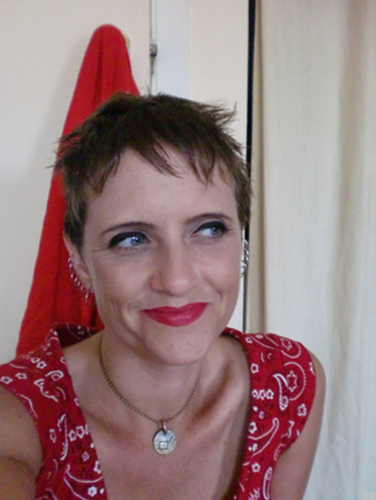
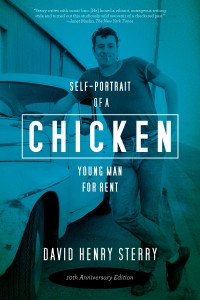 “G
“G raced with insight and empathy—for his own rage, for his family, and for the wealthy female clients whom he serves—Sterry finds a literary rhythm as fluid and alluring as the strut of his ‘nuthugging elephantbells. Combine this with a sense of humor as bright and ridiculous as a ‘blood-engorged wangdangdoodle-hammer, and you have material that is ideal for stage and screen.”
raced with insight and empathy—for his own rage, for his family, and for the wealthy female clients whom he serves—Sterry finds a literary rhythm as fluid and alluring as the strut of his ‘nuthugging elephantbells. Combine this with a sense of humor as bright and ridiculous as a ‘blood-engorged wangdangdoodle-hammer, and you have material that is ideal for stage and screen.”
Silke Tudor, The San Francisco Weekly (House of Tudor column)
To buy Chicken click here.
I walk all the way up Hollywood Boulevard to Grauman’s Chinese Theatre: past tourists snapping shots; wannabe starlets sparkling by in miniskirts with head shots in their hands and moondust in their eyes; rowdy cowboys drinking with drunken Indians; black businessmen bustling by briskly in crisp suits; ladies who do not lunch with nylons rolled up below the knee pushing shopping carts full of everything they own; Mustangs rubbing up against muscular Mercedes and Hell’s Angels hogs.
It’s a sick twisted Wonderland, and I’m Alice.
This is the chronicle of a young man walking the razor-sharp line between painful innocence and the allure of the abyss. David Sterry was a wide-eyed son of 1970s suburbia, but within a week of enrolling at Immaculate Heart College, he was lured into the dark underbelly of the Hollywood flesh trade. Chicken has become a coming-of-age classic, and has been translated into ten languages. This ten-year anniversary edition has shocking new material.
“Sterry writes with comic brio … [he] honed a vibrant outrageous writing style and turned out this studiously wild souvenir of a checkered past.” – Janet Maslin, The New York Times
“This is a stunning book. Sterry’s prose fizzes like a firework. Every page crackles… A very easy, exciting book to read – as laconic as Dashiell Hammett, as viscerally hallucinogenic as Hunter S Thompson. Sex, violence, drugs, love, hate, and great writing all within a single wrapper. What more could you possibly ask for? -Maurince Newman, Irish Times
“A beautiful book… a real work of literature.” – Vanessa Feltz, BBC
“Insightful and funny… captures Hollywood beautifully” – Larry Mantle, Air Talk, NPR
“Jawdropping… A carefully crafted piece of work…” -Benedicte Page, Book News, UK
“A 1-night read. Should be mandatory reading for parents and kids.” -Bert Lee, Talk of the Town
“Alternately sexy and terrifying, hysterical and weird, David Henry Sterry’s Chicken is a hot walk on the wild side of Hollywood’s fleshy underbelly. With lush prose and a flawless ear for the rhythms of the street, Sterry lays out a life lived on the edge in a coming-of-age classic that’s colorful, riveting, and strangely beautiful. David Henry Sterry is the real thing.” –Jerry Stahl, author of Permanent Midnight
“Compulsively readable, visceral, and very funny. The author, a winningly honest companion, has taken us right into his head, moment-by-moment: rarely has the mentality of sex been so scrupulously observed and reproduced on paper. Granted, he had some amazingly bizarre experiences to draw upon; but as V. S. Pritchett observed, in memoirs you get no pints for living, the art is all that counts-and David Henry Sterry clearly possesses the storyteller’s art.” – Phillip Lopate, author of Portrait of My Body – Phillip Lopate, author of Portrait of My Body
“Like an X-rated Boogie Nights narrated by a teenage Alice in Wonderland. Sterry’s anecdotes… expose Hollywood at its seamiest, a desperate city of smut and glitz. I read the book from cover to cover in one night, finally arriving at the black and white photo of the softly smiling former chicken turned memoirist.” -Places Magazine
“Snappy and acutely observational writing… It’s a book filled with wit, some moments of slapstick, and of some severe poignancy… a flair for descriptive language… The human ability to be kind ultimately reveals itself, in a book which is dark, yet always upbeat and irreverent. A really good, and enlightening, read.” – Ian Beetlestone, Leeds Guide
“Brutally illuminating and remarkably compassionate… a walk on the wild side which is alternatively exhilirating and horrifying, outrageous and tragic… Essential reading.” – Big Issue
“Visceral, frank and compulsive reading.’ –City Life, Manchester
“Sparkling prose… a triumph of the will.” -Buzz Magazine
“Pick of the Week.” -Independent
“Impossible to put down, even, no, especially when, the sky is falling…Vulnerable, tough, innocent and wise… A fast-paced jazzy writing style… a great read.” -Hallmemoirs
“Full of truth, horror, and riotous humor.” -The Latest Books
“His memoir is a super-readable roller coaster — the story of a young man who sees more of the sexual world in one year than most people ever do.” – Dr. Carol Queen, Spectator Magazine
“Terrifically readable… Sterry’s an adventurer who happens to feel and think deeply. He’s written a thoroughly absorbing story sensitively and with great compassion… A page-turner… This is a strange story told easily and well.” – Eileen Berdon, Erotica.com
“Love to see this book turned into a movie, Julianne Moore might like to play Sterry’s mum…” – by Iain Sharp The Sunday Star-Times, Auckland, New Zealand).
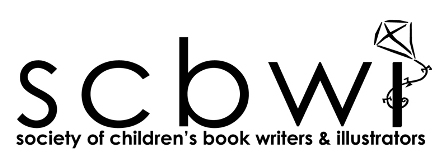
We just got a wonderful review for The Essential Guide to Getting Your Book Published (to buy click on link). Here’s the Essential Guide in SCBWI Bulletin.
BY HEATHER E. SCHWARTZ
TRYING TO WRITE the perfect pitch? Need help handling rejection? Wish getting published weren’t such a harrowing and mysterious endeavor? Like most writers, I’ve been there. Then, I found The Essential Guide to Getting Your Book Published, by Arielle Eckstut and David Henry Sterry. I love everything about this book: The humorous and compassionate tone. The three-part structure that divides four hundred and sixty-three pages into manageable sections. The way the authors answer questions I’ve had for years. (Wondering how to put a personal spin on a letter to an agent you’ve never met? Yes, the answer is in here!) The Essential Guide to Getting Your Book Published is packed with information on every aspect of publishing, from developing marketable ideas, establishing a platform, and perfecting your pitch to negotiating contracts, working with publishers, and self-publishing. It also covers the work authors need to do after their book is out—publicity and marketing, connecting with readers, selling books, and evaluating the entire process, so you’ll be prepared when it comes to writing and selling your next book. It’s easy to feel comfortable following the advice you’ll find in The Essential Guide to Getting Your Book Published. Eckstut is a writer, entrepreneur and agent-at-large for the Levine Greenberg Literary Agency. Sterry is the author of eleven books. And throughout every chapter, they’ve included stories from successful authors who can inspire, warn, and motivate those who are new to the world of publishing.
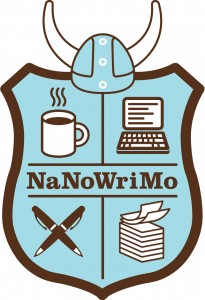
Making Editing Fun: How to Enjoy Revising Your Novel Successfully $60
The first 200 writers who sign up by January 28 will receive invitations via email to participate in this webinar, which will take place on Wednesday, Jan. 29, from 5:00 PM – 6:30 PM Pacific. If you can’t join the webinar live, we’ll happily send you a link to the recording afterward.
About the Webinar
One of the hardest thing for Nano writers is to take their beautiful but unshaped pieces of clay and turn them into glorious works of art that agents, publishers and readers will fall in love with. But what may seem a confusing and slightly terrifying task
can actually be a systematic and easily understood process. And yes, it can even be fun!
Join the Book Doctors, Arielle Eckstut and David Henry Sterry, who have helped talented amateurs become professionally published authors. Between them, they have over 30 years of experience in the publishing business, and have authored, agented and/or midwived hundreds of books, including The Essential Guide to Getting Your Book Published: How to Write It, Sell It, and Market It . . . Successfully.
The Book Doctors will show you how to:
• Start off with a bang
• Check character arcs
• Pace properly
• Build suspense
• Open and close chapters
• Avoid repetition avoid repetition avoid repetition
• Trim fat
• Make the most of your title
• Know when to show and when to tell
• Avoiding clichés
• Keep dialogue real
• Check for words you use over and over and over again
• Read aloud
• Kill your babies
• Find beta readers
• Get objectivity
• Use your pitch to perfect your plot
The Book Doctors will also randomly select a number of first paragraphs from attendees’ manuscripts during the webinar to demonstrate what a professional edit look likes. Send your first paragraph in the body of the email to [email protected] when you sign up.


